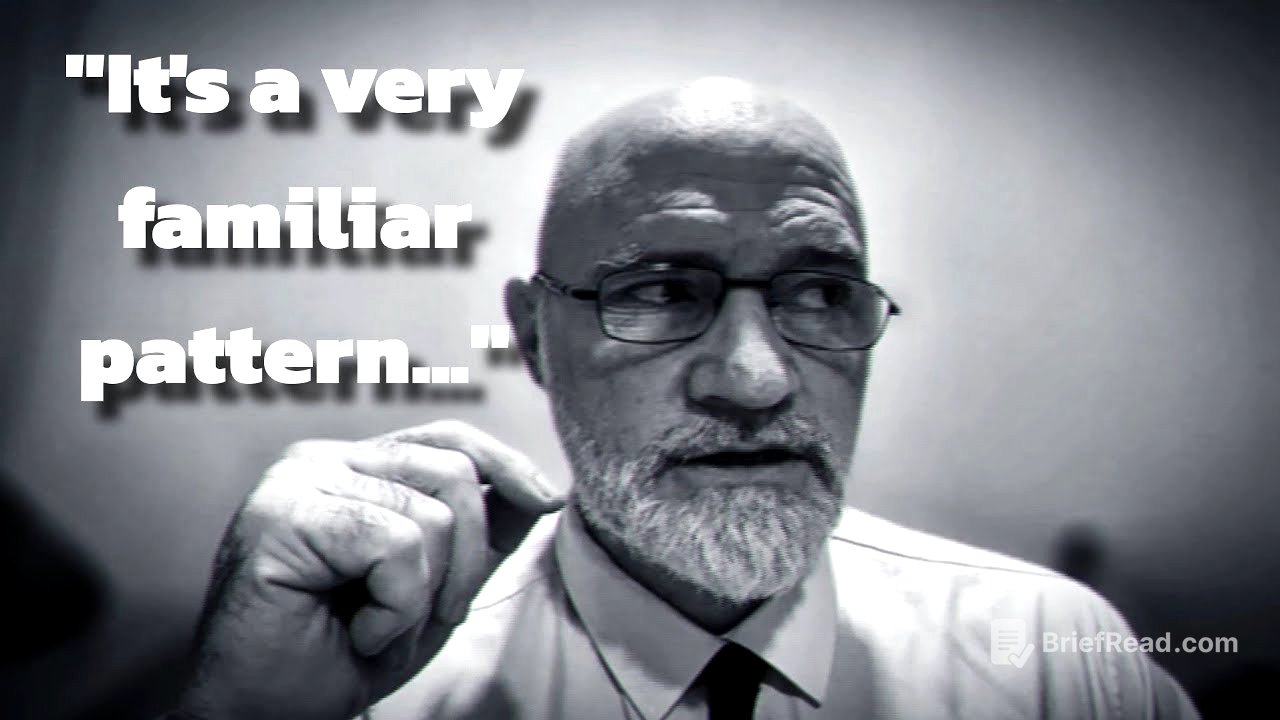TLDR;
This video analyzes the recent events in Bangladesh, suggesting that the student protests, while initially legitimate, were exploited by Western intelligence to facilitate regime change and undermine China's influence. The speaker draws parallels to historical instances of Western intervention, predicting economic shock therapy, rigged elections, and a crackdown on civil liberties. They also discuss similar patterns of US intervention in Venezuela, Pakistan, Georgia, Kazakhstan, South Africa, Bolivia, Ecuador and Nicaragua, framing these actions as part of a broader strategy to maintain global influence amid the rise of BRICS nations.
- Student protests in Bangladesh were likely hijacked by Western intelligence to trigger regime change.
- The resignation of Sheikh Hasina was engineered to weaken ties with China and BRICS.
- The US is actively working to regain global influence by undermining nations aligned with BRICS.
Bangladesh Political Situation [0:04]
The speaker believes that the recent events in Bangladesh unfolded as anticipated, with student protests being manipulated by Western intelligence to achieve regime change. The goal was to disconnect Bangladesh from China and the BRICS economic alliance, thereby preventing the country from joining BRICS with Brazil's assistance. While the protests provided a pretext for Sheikh Hasina's resignation, they were not the primary cause. Her departure was engineered by powerful actors within Bangladesh, in collaboration with the United States, which welcomed her resignation.
The Role of Protests and External Influence [2:40]
The student protests began as a legitimate call for justice against unfair employment policies, but the speaker argues that they were hijacked after initial concessions were made. The continuation of the protests beyond their original aims suggests the presence of agent provocateurs using the situation to create momentum for regime change. The speaker asserts that the brutal tactics of the police contributed to the situation's degradation, but any country in the global South would react with suspicion to protest movements, particularly if relations with the US are strained, fearing external interference aimed at unseating the government.
Western Imperialism and Social Media Manipulation [6:11]
The speaker identifies Western imperialism as a sinister force that deliberately fueled unrest in Bangladesh to achieve its own purposes. Social media was used to spread misinformation and manipulate young people, inciting them to call for the government's toppling. The legitimate grievances of the students were exploited as pawns in a divide-and-conquer strategy. Bangladesh, with its significant population and strategic relationships with China, India, and Russia, poses a threat to Western interests.
Expected Outcomes and Historical Parallels [7:56]
Following Sheikh Hasina's resignation, the army is expected to establish an interim government composed of handpicked individuals with ties to Western powers. This government will likely crack down on dissent under the pretext of maintaining order. The speaker draws parallels to historical events such as the 1953 CIA-backed coup in Iran and the 1973 coup in Chile, where interim governments suppressed political opposition. Economic shock therapy, involving privatization and deregulation, is anticipated, benefiting Western corporations and local elites, similar to what occurred in Poland and Russia in the 1990s.
Future of Bangladesh and US Foreign Policy [10:07]
The speaker predicts that future elections in Bangladesh will be rigged to favor Western-backed candidates, with Western organizations validating the process to create the illusion of a vibrant democracy. The new government will likely pursue aggressive privatization and align Bangladesh's foreign policy with Western interests, including supporting US-led wars and sanctions. China will be marginalized, and Bangladesh will likely accept new IMF and World Bank loans, sacrificing economic sovereignty and political independence. The US is actively seeking to regain its global sphere of influence, particularly in regions where BRICS nations are gaining traction, using diplomatic, economic, military, and political measures.
US Intervention in Other Countries [12:42]
The speaker highlights examples of US intervention in various countries, including Venezuela, Pakistan, Georgia, Kazakhstan, South Africa, Bolivia, Ecuador, and Nicaragua. In Venezuela, the US has sought to oust Maduro's government through economic sanctions and support for the opposition. In Pakistan, Imran Khan was removed for refusing to distance himself from China and Russia and for resisting IMF control. Similar patterns of intervention, often involving the exploitation of legitimate grievances, are observed in other nations.
Final Thoughts on Bangladesh [14:16]
The US aims to secure as many strategic advantages as possible before its global influence diminishes and the global economy transitions to the global South. The speaker expresses regret for the future of Bangladesh, predicting that the current celebrations will turn to regret as the new powers operating behind the scenes will be more oppressive than the previous government. The real struggle for Bangladesh is just beginning, and the opposition may not fully understand the nature of the challenge. The speaker hopes that Bangladesh will assert its uniqueness by maturing its opposition and resistance against the impending oppression.









